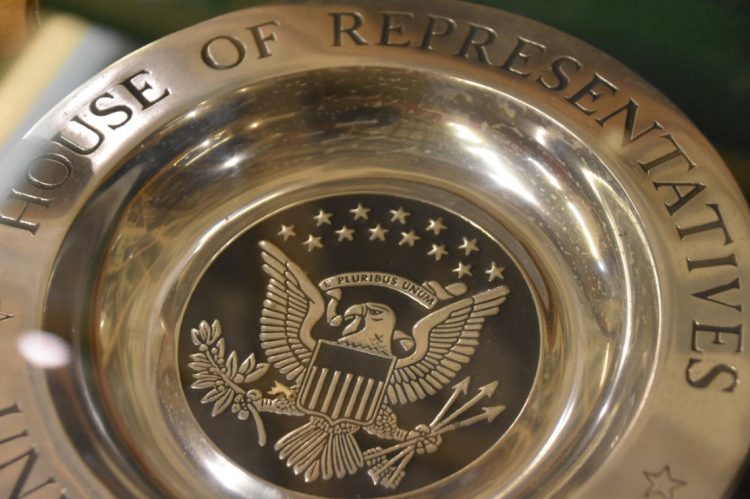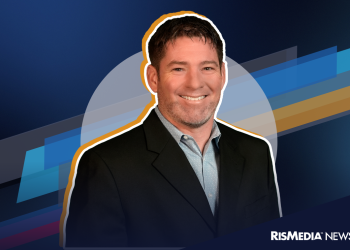Appearing before The Monetary Policy, Treasury Market Resilience, and Economic Prosperity Task Force—established by the House Financial Services Committee in January—Federal Reserve Chair Jerome Powell was questioned about the Fed’s independence amid political pressures, the role of Fannie Mae and Freddie Mac and the impact of tariffs on housing affordability.
This hearing followed Powell’s Senate testimony on Tuesday, part of the Fed’s semiannual testimony to Congress.
Throughout his testimony, Powell made it clear to representatives that President Donald Trump’s comments on tariffs and interest rates would not affect his decision to cut rates.
While the topic of Basel III was touched on during Tuesday’s Senate hearing, representatives on Wednesday pressed Powell on how the latest set of revisions will have deep reverberations throughout the economy.
In its latest set of revisions, published July 27, 2023, Basel III Endgame proposes significant increases in capital requirements for banks with more than $100 billion in assets by 15% to 20%. Banks are expected to comply with these new regulations on July 1, 2025.
Representative Ann Wagner (R-Missouri) urged Powell to scrap the Basel III proposal completely and start over. She stressed the “endgame” since this has been in the works for two decades.
Concerned about Basel III, Representative Andy Barr (R-Kentucky) emphasized that the proposed changes will make American banks less competitive on the global stage. He asked if the goal of bank capital rules should be global regulatory harmonization or if it should be American economic competitiveness.
“Clearly, the goal is to have a strong banking system that supports American economic activity and growth; that’s the ultimate goal,” said Powell. “What you get from Basel is a global floor so that the other banks can’t run on less capital and sort of have a short-term advantage—that was the whole point of Basel. It was to get everybody to the same kind of level so that it wouldn’t be the race to the bottom.”
Acknowledging how Michael Barr will be stepping down from his role as the Fed’s vice chair for supervision and whether or not President Trump will fill that role, Representative Bill Huizenga (R-Michigan) asked Powell if the Fed “really needs” a separate vice chair of supervision to complete its work.
The vice chair position was created by the Dodd-Frank Act, adopted in 2010, which President Trump tried to dismantle in his first term.
Powell said that the Fed did their business for many years without the vice chair of supervision—with everything going through the full board—and that it was still effective with less volatility.
“You’ve got a group of seven people on the board and there will be some—as appointments change—changes in the approach to regulation, but putting it all on a single person, admittedly just to recommend to the board, can lead to some volatility in these things, larger swings in these kind of things. And that’s not great for the institutions that we want to regulate. We want to have a good set of regulations that doesn’t swing back and forth very much,” said Powell. “Once Vice Chair Barr completes his term in a few weeks, we will continue on until there’s a new vice chair for supervision and we can very much get our work done.”
“Or if there is one,” Representative Huizenga added.
Representative Maxine Waters (D-California) commented on President Trump’s actions this past week to subdue the Consumer Financial Protection Bureau (CFPB). “In recent days, they attempted to illegally kill the Consumer Financial Protection Bureau, the same agency created after the financial crisis of 2008. Since its inception, CFPB has successfully fought on behalf of working-class families against abuse to big banks and predatory lenders.”
She returned to Powell’s comment at the Senate hearing earlier this week about how, without the CFPB, there is no agency to supervise big banks to ensure they follow consumer finance laws, and demanded answers on the independence of the Fed.
She added her concerns about Trump’s influence on Powell after he removed the DEI initiatives section from the Fed’s website. Powell previously said that he would comply with executive orders “as appropriate and consistent with applicable law.”
The Dodd-Frank Act notably includes numerous directives aimed at increasing diversity and inclusion in federal financial institutions like the central bank.
Every country should understand the importance of a central banking system, she said. When asked by Representative Waters if Powell would let Musk in if he came knocking on the Fed’s door, Powell did not offer a comment.
Representative Brad Sherman (D-California) also challenged Powell’s independence from President Trump.
“I’m more concerned with the president’s statement at 7:58 this morning, where he said that interest rates should be lower. He said it; will that influence what the Fed actually does?” asked Representative Sherman. He then added Trump’s comment about how “interest rates should be lowered—something which would go hand in hand with upcoming tariffs.”
Powell once again declined to comment on the president and said the Fed would proceed to make decisions based on “what’s happening in the economy.”
Representative Sherman asked whether a 10% – 25% tariff increase would raise the cost of living and, in turn, lead to higher interest rates.
Though Powell said the Fed reserves judgment until they know what the policies are, he then said, “If inflation goes up in general—forget about tariffs—we will use our tools, which is the interest rate, to bring it back down to 2% over time.”
Representative Sherman also asked about the plan’s proposal to privatize Fannie Mae and Freddie Mac. “If there was no explicit or implicit Federal guarantee for those who invest in mortgages, would that lead to higher mortgage interest rates?”
Ultimately, Powell agreed, saying it could lead to higher mortgage rates, but the privatization “might have some virtues, too, though.”
Representative Frank Lucas (R-Oklahoma) asked Powell for a five-year review of the Fed’s monetary policy, and asked what categories of issues would be helpful to receive feedback on.
“So, a good part of it will be looking at the changes we made in 2020, which were made in an environment where we had been stuck at the effective lower bound at zero for seven years, and the highest we got our rate sustainably was at 1.5%, and that was the highest of any advanced economy’s central bank,” Powell said. “So the concern was that at the slightest downturn, we’d be back at the zero lower bound, and we’d be stuck, so we were looking for ways to make up for that. So then the question is, ‘We got the inflation out of the pandemic and the events related to it—are we in a different place now?’ I think the chances are pretty good that the effective lower bound is still a concern, but it’s not the base case anymore. So we need to look at that and decide what are the implications of that for our framework.”












